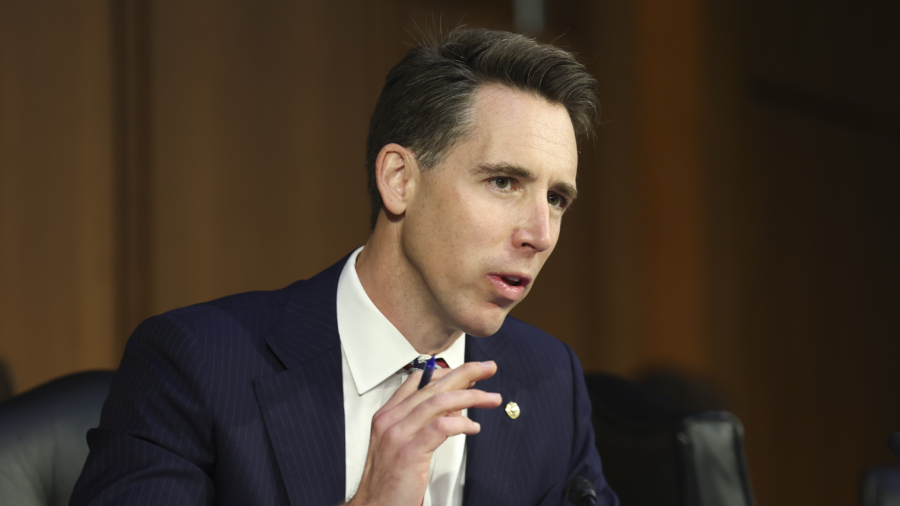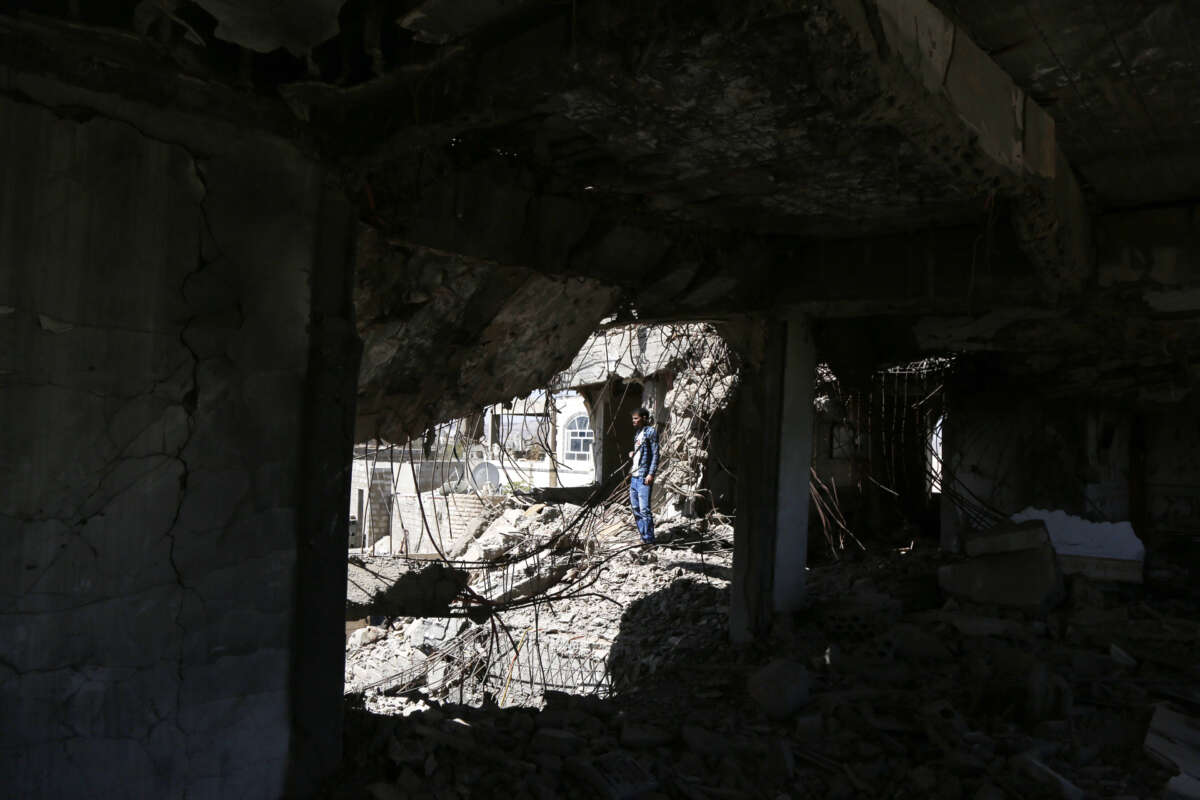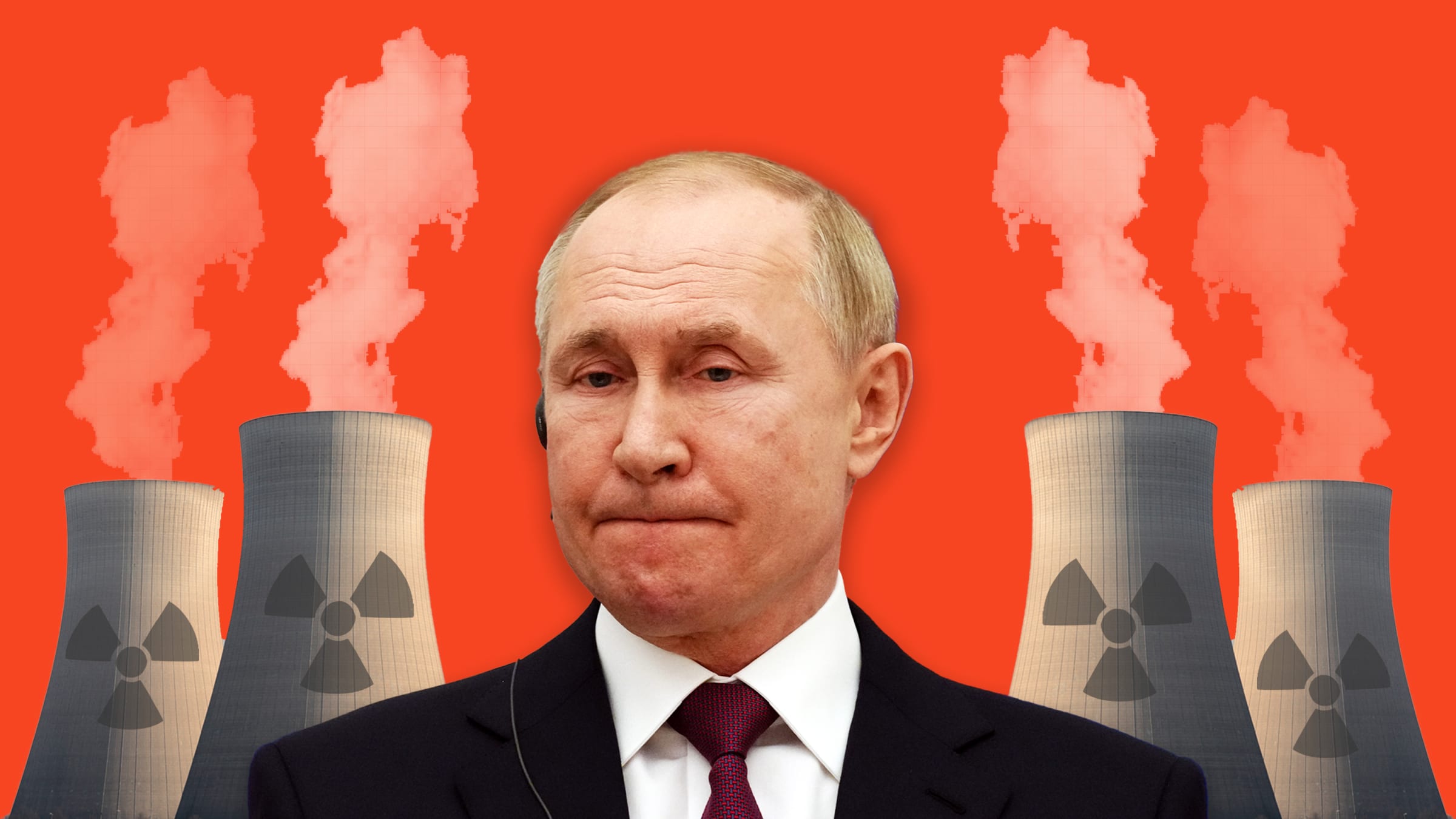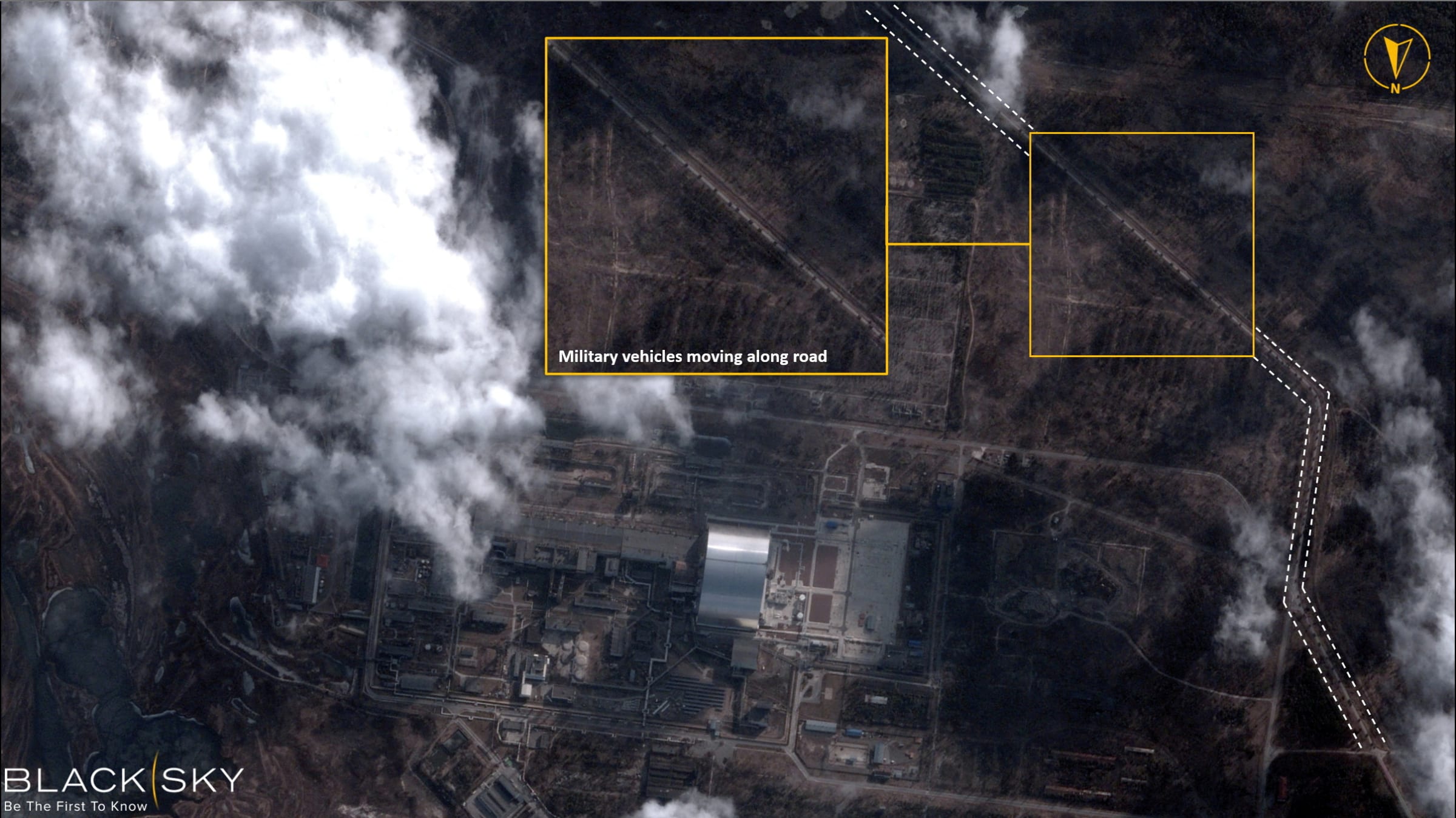The conclusion is due to new intelligence, but the department made its judgment with “low confidence,” according to people who have read the classified report, The Wall St. Journal said.
By Olivia Konotey-Ahulu
Mon., Feb. 27, 2023
A laboratory leak was the most likely origin of the COVID-19 virus, according to findings by the U.S. Energy Department, The Wall Street Journal reported.
A classified intelligence report provided to the White House and key members of Congress said the virus likely spread due to a mishap at a Chinese laboratory, The Journal reported on Sunday.
The Energy Department had previously been undecided on the source of the virus. The conclusion is due to new intelligence, but the department made its judgment with “low confidence,” according to people who have read the classified report, The Journal said.
U.S. national security adviser Jake Sullivan said Sunday there’s “a variety of views” in the U.S. intelligence community about whether the virus originated naturally or in a lab and he “can’t confirm or deny” the Wall Street Journal report.
President Joe Biden has asked the National Laboratories, which are part of the Energy Department, to be part of the assessment, Sullivan said on CNN’s “State of the Union.”
“And if we gain any further insight or information, we will share it with Congress and we will share it with the American people,” he said. “But, right now, there is not a definitive answer that has emerged from the intelligence community on this question.”
China has long hit back at any suggestion that the COVID-19 virus originated in a lab. The Chinese Embassy in Washington didn’t immediately respond to a request for comment outside regular working hours.
By Reuters
Feb. 27, 2023

Ambassador to China Nicholas Burns attends the World Peace Forum at Tsinghua University in Beijing, China July 4, 2022.
By Michael Martina and David Brunnstrom
WASHINGTON/BEIJING (Reuters) -China must be more honest about the origins of the COVID-19 pandemic, the U.S. ambassador to China said on Monday, after reports that the U.S. Energy Department concluded the pandemic likely arose from a Chinese laboratory leak.
Nicholas Burns, speaking by video link at a U.S. Chamber of Commerce event, said it was necessary to push China to take a more active role in the World Health Organization (WHO) if the U.N. health agency was to be strengthened.
China also needed to "be more honest about what happened three years ago in Wuhan with the origin of the COVID-19 crisis," Burns said, referring to the central Chinese city where the first human cases were reported in December 2019.
The Wall Street Journal first reported on Sunday that the U.S. Energy Department had concluded the pandemic likely arose from a Chinese laboratory leak, an assessment Beijing denies.
The department made its judgment with "low confidence" in a classified intelligence report recently provided to the White House and key members of Congress, the Journal said, citing people who had read the intelligence report.
Four other U.S. agencies, along with a national intelligence panel, still judge that COVID-19 was likely the result of natural transmission, while two are undecided, the Journal reported.
The Energy Department did not respond to a request for comment.
President Joe Biden's national security adviser, Jake Sullivan, said on Sunday there were a "variety of views in the intelligence community" on the pandemic's origins.
"A number of them have said they just don't have enough information," Sullivan told CNN.
Asked to comment on the report, which was confirmed by other U.S. media, China's foreign ministry referred to a WHO-China report that pointed toward a natural origin for the pandemic, likely from bats, rather than a lab leak.
"Certain parties should stop rehashing the 'lab leak' narrative, stop smearing China and stop politicizing the origins-tracing issue," foreign ministry spokesperson Mao Ning said.
'A LITTLE BIT ORWELLIAN'
Burns told the Chamber event that it was a difficult moment for U.S.-China relations, with Beijing seeking to deflect blame after the U.S. military this month downed an alleged Chinese spy balloon that drifted across the continental United States.
"We're now in this surreal moment where the Chinese, who I think lost the debate over the balloon globally, lost influence and credibility around the world because of what they've done - they're now blaming this on us," Burns said.
"It's a little bit Orwellian. And it's a little bit frustrating, because I think everybody knows the truth here."
China reacted angrily when the U.S. military downed the balloon on Feb. 4, saying it was for monitoring weather conditions and had blown off course.
Burns added that it was the obligation of the United States to maintain its military strength "in and around Taiwan" to ensure the self-governed island claimed by Beijing has the ability to deter any kind of "offensive action" by China.
"It's also ... our responsibility to galvanize the rest of the world to make sure that the Chinese cannot get away with coercion or intimidation against Taiwan itself," he said.
(Reporting by Michael Martina and David Brunnstrom in Washington and the Beijing newsroom; Editing by Don Durfee and Alistair Bell)
China said Monday that studies into the origins of COVID-19 "should not be politicized" after a new assessment led to fresh scrutiny into a possible laboratory accident in late 2019 in the central Chinese city of Wuhan.
Mao Ning, a spokesperson for the Chinese Foreign Ministry, pointed to the March 2021 findings of a joint WHO-China report that called the lab leak theory "extremely unlikely." That verdict was "a science-based, authoritative conclusion," she said at a regular press briefing in Beijing.
"Certain parties should stop rehashing the 'lab leak' narrative, stop smearing China and stop politicizing origin tracing," Mao said after The Wall Street Journal and The New York Times reported that the United States Department of Energy concluded, with "low confidence," that SARS-CoV-2 had emerged as a result of a lab mishap.
The DOE, which oversees U.S. national laboratories, was previously undecided about the virus's origins. It now joins the FBI's own "moderate confidence" assessment as only the second agency to side with the lab leak theory. Four other agencies still lean toward natural transmission as the most likely explanation for the initial outbreak, while two remain undecided.

The WHO-China report published almost two years ago was the only authoritative assessment the United Nations health agency was able to produce about the start of the pandemic. Beijing appointed half the researchers on the mission, restricted the team's access to critical data, and blocked WHO attempts to conduct a phase-two study that included a review of Wuhan's surroundings.
Beijing's decisions went some way toward undermining the report's eventual findings, which were largely dismissed by American officials. As a result, the phase-one mission report lacked "extensive recognition from the international community," contrary to China's claim.
Four months after taking office, President Joe Biden ordered the U.S. intelligence community to determine the likely origins of the virus behind the disease that has now killed at least 6.8 million people worldwide, including upward of a million Americans. The report after 90 days was inconclusive, but the agencies judged the virus was not a biological weapon and wasn't released with Beijing's knowledge.
Maria Van Kerkhove, the WHO's technical lead on COVID, said at a press conference on February 15 that the unsuccessful phase-two plans later morphed into the Scientific Advisory Group for the Origins of Novel Pathogens (SAGO), a multinational panel that included Chinese experts, announced in October 2021.
"I think we need to be perfectly clear that WHO has not abandoned studying the origins of COVID-19. We have not and we will not," Van Kerkhove said in Geneva. "But let me also be very clear that we continue to ask for more cooperation and collaboration with our colleagues in China to advance studies that need to take place in China."
"We will follow the science. We will continue to ask for countries to depoliticize this work, but we need cooperation from our colleagues in China to advance this," she said.
"We will not stop until we understand the origins of this. And it is becoming increasingly difficult because the more time that passes, the more difficult it becomes to really understand what happened in those early stages of the pandemic."
By Gary Bai
February 27, 2023

Sen. Josh Hawley (R-Mo.) questions Peiter “Mudge” Zatko, former head of security at Twitter, during Senate Judiciary Committee on data security at Twitter, on Capitol Hill in Washington on Sept. 13, 2022. (Kevin Dietsch/Getty Images)
Republican lawmakers responded to a news report saying that the U.S. Energy Department had concluded the lab leak theory was “likely,” saying that the finding supports what many have long suspected.
A Wall Street Journal article on Feb. 26 reported that a classified intelligence report by the Energy Department said that the virus likely leaked from the Wuhan Institute of Virology.
“So the government caught up to what Real America knew all along,” Rep. Jim Jordan (R-Ohio) wrote in a Twitter post on Sunday.
The responses came as GOP lawmakers ramp up investigations into the origin of COVID-19 and allegations of government-big tech censorship of the debate.
The Energy Department was previously undecided on the issue but now joins the FBI in corroborating the lab leak hypothesis, according to the report. Several people who have read the report said the Department’s judgment was made with “low confidence,” the Journal reported.
Responding to the report on Sunday, White House national security advisor Jake Sullivan told CNN that the intelligence community does not have a “definitive answer” on the matter at this point.
Republican lawmakers have been vocal about the theory that the virus leaked from the Wuhan laboratory soon after the onset of the pandemic in 2020. Initially, some health professionals and legacy media outlets dismissed the theory, labeling the theory’s proponents as racist and conspiracy theorists.
Fauci
Some lawmakers also accused Anthony Fauci, former head of the National Institutes of Allergy and Infectious Diseases (NIAID), of colluding with big tech companies, such as Facebook and Twitter, and censoring stories about the lab leak theory via what these companies describe as a crackdown on “misinformation.”
“Fauci knew this immediately but dismissed it because of funding for the Wuhan lab,” Sen. Eric Schmitt (R-Mo.) wrote in another post. “We know what happened next — when Fauci spoke Big Tech censored. I exposed this collusion as AG and I’ll work to ensure this type of censorship never happens again.”
“Americans knew this from Day One,” Rep. Andy Biggs (R-Ariz.) wrote on Twitter on Sunday. “Unfortunately, Big Tech and Big Government silenced them.”
Republicans and critics of Fauci have raised concerns about the NIAID’s funding of the Wuhan Institute of Virology via the non-governmental organization EcoHealth Alliance, including for research described by experts as gain-of-function. The NIAID issued about 3.4 million in grants to EcoHealth.
Gain-of-function research makes the virus more deadly by enhancing its pathogenicity, its ability to cause disease and harm the host, or transmissibility, how easily it spreads.
The NIH has denied that the grants were for gain-of-function research, while Fauci has defended the decision to issue the grants to EcoHealth.
“More evidence continues to mount that COVID came from the Wuhan lab. We’ve uncovered emails showing Dr. Fauci was warned that the virus looked man-made & came from a lab, but he may have acted to cover it up. Why? We need answers & accountability,” wrote the official Twitter account of the House Oversight Republican Committee.
Republicans on the committee previously disclosed internal NIH emails that showed Fauci was informed by senior scientists early in the pandemic that the theory that COVID-19 had a natural origin was “highly unlikely,” even while Fauci was publicly promoting the natural origin theory.
Additional Responses
Republican lawmakers such as Josh Hawley (R-Mo.) took issue with what he described as a lack of transparency in government investigations related to the origins of COVID-19.
“The American people deserve the full truth about #covid origins. No more whitewash. I will again introduce legislation to make the US government’s intelligence reports on covid open to the people,” Hawley wrote.
Rep. Ken Buck (R-Colo.) echoed Hawley’s view.
“The elites and academics owe everyone who had legitimate questions and concerns about the origins of COVID an apology,” Buck wrote in a Twitter post. “The American people deserve to see all the information concerning the Chinese lab leak and the origins of COVID. This won’t be forgotten.”
Meanwhile, Sen. Tom Cotton (R-Ark.) says the United States should focus on the further implications of the report, namely, the need for the U.S. government to act to hold the Chinese regime accountable for the pandemic.
“Re. China’s lab leak, being proven right doesn’t matter,” Cotton wrote in a Twitter post. “What matters is holding the Chinese Communist Party accountable so this doesn’t happen again.”
The Epoch Times contacted the National Institutes of Health and the Department of Energy for comment.
From The Epoch Times








